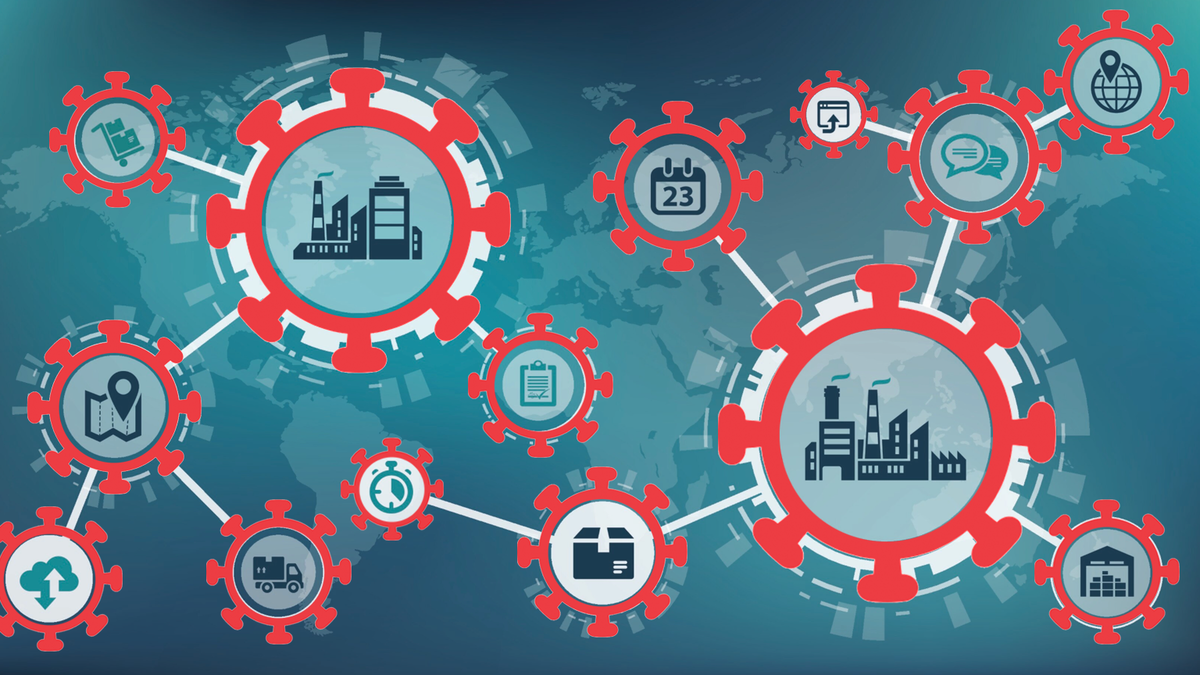
Industries shut down and demand increases
Because of Covid, industries have been forced to close for a while. Entire production plants have been shut down to limit the contamination of the virus. In addition China and India, known as the world's factory, have been further affected by the successive variants and therefore the main production plants in the world have had to close down several times. In combination with this problem, the market has seen a rebound in demand after the initial phases of Covid, a demand that was not at all expected by manufacturers. But it makes sense, as households did not spend too much during the lockdowns so they are investing much more now. Even as some production started up again, a forced shutdown of Chinese factories continued to disrupt the already complicated situation. Indeed, a widespread electricity crisis has hit China and other countries due to the rising price of coal and energy rationing measures as winter approaches. And while many products could still be produced, they cannot necessarily be shipped.
Transport problems in international trade

As the production of goods slows down, container shortages are adding to the list of disruptions caused by the health crisis. Carriers, ports and shippers did not expect such demand, so that empty containers were located in many ports but not in those where the need is present, notably in China where warehouses are even full of goods to be shipped. It has been calculated that 50% of the goods are still waiting in warehouses. Added to this is the fact that over the last few months the main cargo ports have saturated and container ships are stuck in traffic jams. The delays due to these conditions are therefore double what they are in normal times.Shipping companies, which are therefore essential to try to ease the traffic, have increased the price of container ship transport. As there are not many of them offering this service, they have a strong decision-making power and they charge prices well above the normal level - for example a sevenfold increase in prices has been observed. And companies, obliged to transport their goods, will therefore pass on this price increase to their sales prices, so that the consumer will also pay the costs of this general disruption of logistics chains.
Example of computer chips
To get a good idea of the scale of the problem, take the example of computer chips. Experts believe that the conductors used in computer chips will not be available in sufficient quantities until 2023. Particularly because of the pandemic even if it already started a little bit before. Added to this is the energy disruption in India, one of the main producers of these computer chips, due to the rise in the price of coal, which limits India's import and therefore brings many factories to a standstill. There is a real shortage of these computer chips today and this has repercussions on the production of many other goods such as the manufacture of cars, telephones, computers, etc., even though there is currently an increase in demand for computer products, particularly with teleworking, the various lockdowns and the launch of 5G. Some factories are therefore forced to close due to lack of raw materials. And some of them are taking advantage of this to expand their infrastructures because demand is still there and will be even stronger when semiconductor production resumes normally.
So this is a crisis that is not going to end easily. Companies will only be able to return to their pre-Covid pace in at least one or two years. If there is not a rebound in Covid, which would jeopardise these timescales. With supply chains and freight transport slowing down for a while yet, shortages and long delivery times are still to be expected.
Tatiana TROTTA
Sources :
https://www.cnbc.com/2021/10/18/supply-chain-chaos-is-hitting-global-growth-and-could-get-worse.html
https://www.nytimes.com/2021/06/01/business/coronavirus-global-shortages.html
https://home.kuehne-nagel.com/-/knowledge/market-insights/container-shortage
https://www.investmentmonitor.ai/analysis/covid-global-shipping-container-shortage
Pictures :
https://www.aft-dev.com/sites/default/files/actualites/Covid-19_Supply-Chain.png
After this "chips crisis", some governments encourage companies to localize their production lines back to its country. Do you think this would be an efficient way to solve this problem? Thanks. (Jing CHEN)
ReplyDeleteYes, I think that relocating the production is a good idea to avoid shortages in general. Indeed, transport would no longer be a problem and the production would only depend on one country. Because it is this increasing interdependence between importing countries, transport companies and exporting countries that causes the current shortages.
DeleteTatiana T.
Hello Tatiana,
ReplyDeleteThank you for your article. Through your article, one can see how much the Covid crisis has affected the world and how much interdependent countries are.
Reading your article, I was thinking of environmental aspects rather than economic ones. I would like to know you your opinion. Do you think that companies could develop a way of transporting goods which would be more eco-friendly and sustainable while meeting the demand?
Thank you in advance for your answer!
Estelle L.
I think that the best way to be more sustainable regarding transport is to relocate the production near the selling points. Because maritime transport is very polluting and today, there are not a lot of solutions to change that. Apart from changing the fuel used or to use some technologies to reduce their emissions, two solutions that are rarely used. But a lot of companies try for example to replace their vehicles with electric cars and trucks, which is a first step (even if the production and the recycling of these batteries are also very polluting). So as I said, relocating the production is the key in my opinion.
DeleteTatiana T.